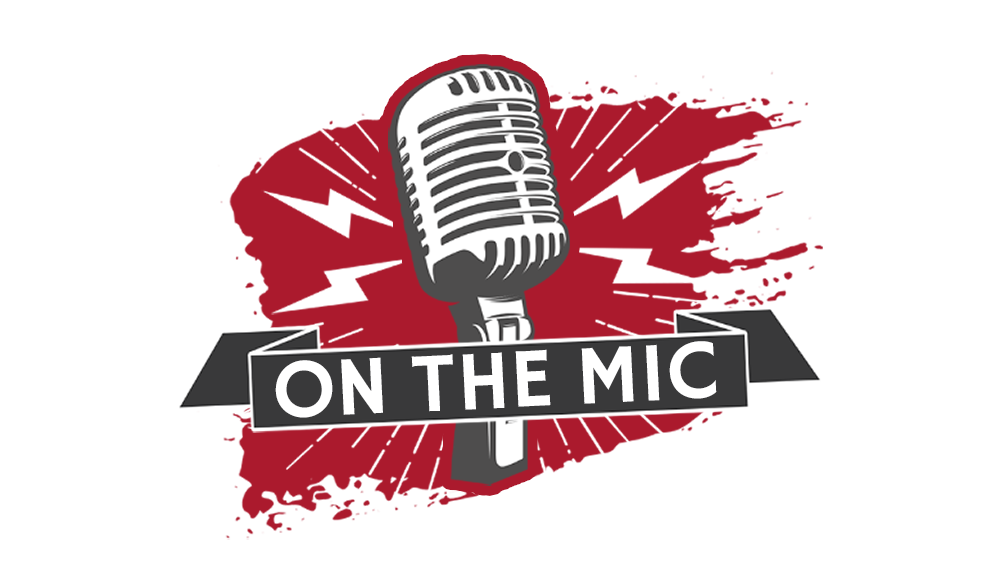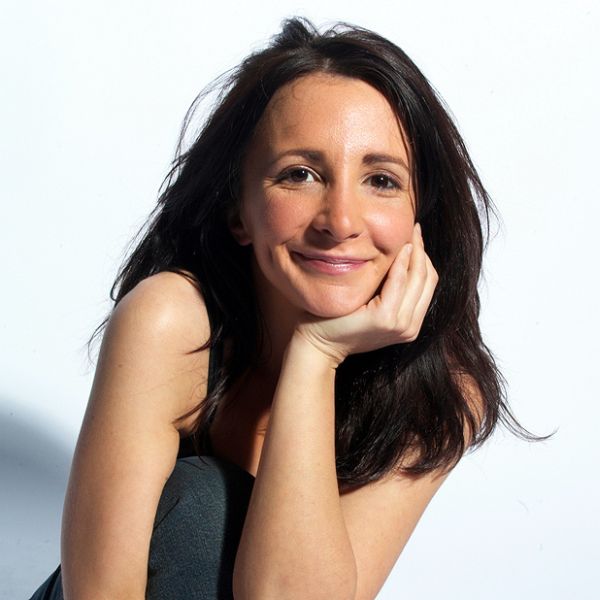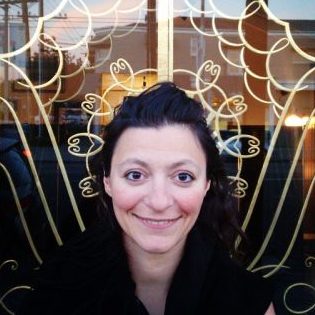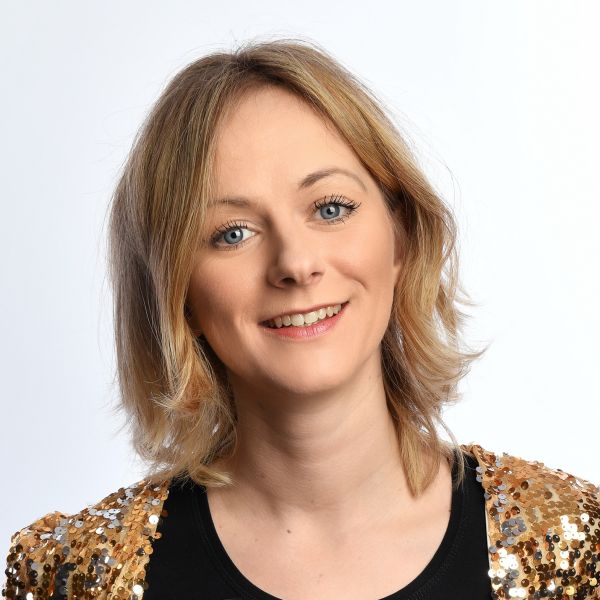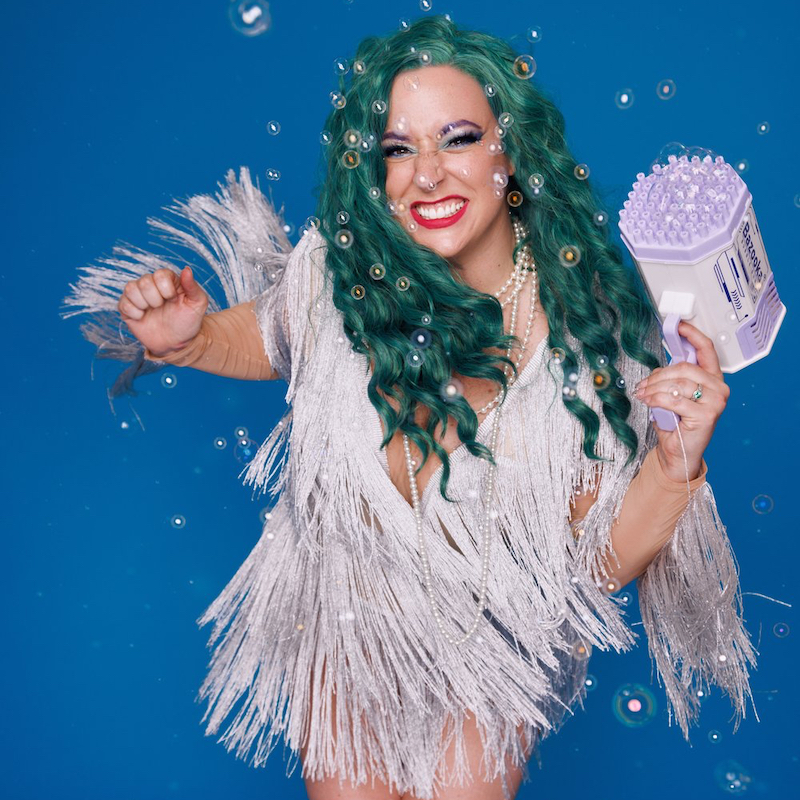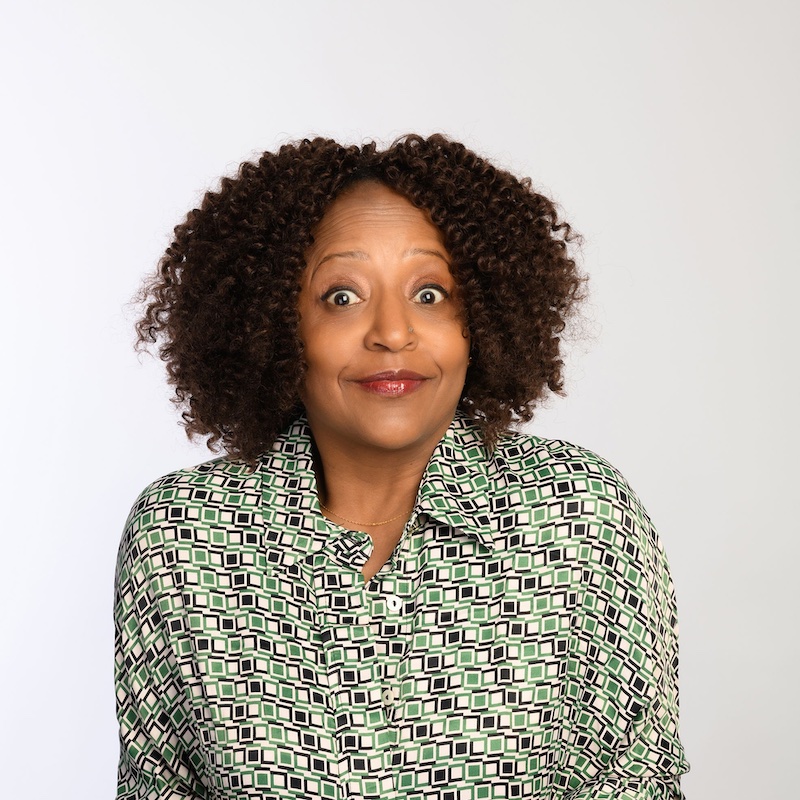Stand up comedian Lucy Porter is a huge hit with comedy audiences across the UK with her distinctive, bouncy, feel-good comedy. She recently took some time off from performing to get married and have a couple of kids. In this extended interview Martin Walker asks about family, feminism and being back at the Edinburgh Fringe.
So you’ve finished your unpaid maternity leave and you’re back?
“Yeah, it’s been a very odd time, it sort of feels like I’ve condensed a lot of living into about five years. Marriage and then banging out a couple of kids. But it’s all good, because everything that happens supplies material, doesn’t it?
“As a stand-up that’s the whole point of your life. If it will generate anything I can talk about on-stage, that’s the most important thing. So even having the new washing machine delivered today, who knows, I may get material out of that.”
Were the delivery men fit?
“I would love to say yes, but no, they’re still outside the door so no, I can’t go into more detail. It wasn’t like when the firemen came round to fit the fire alarm. After you’ve just had a baby they offer you this free thing where they’ll come round and check your smoke alarm. I think they do it to cheer up new mums, because two really attractive firemen come round to your house and get up a ladder. It was probably the most cheering thing that happened in the few weeks after I gave birth.”
So starting a family must have changed you professionally?
“Well everything from stage fright, I used to get quite nervous about doing comedy and that has completely evaporated now. I just don’t have time to get nervous! I’ve done something that to me was more scary… childbirth and commitment and all those sort of things.
“So yeah, it’s made a huge difference to my psychological outlook on life generally and just sheer pressure of time, I just don’t have the time to indulge my worries in the way I used to, which is good.
“But I am unbelievably tired the whole time, which is one of those things as a parent you don’t want to bang on about because everybody does all the time. Sometimes you just go oh my God why did I not just sleep the entire time when I had the chance, why did I do anything other than sleep?”
How old are your children now?
“Two and three.
“Well my younger one has just started to sleep through the night properly. The first one was fine, she was good as gold. I sort of thought this is good parenting but it turns out luck is very much a factor. We were so smug when we heard about other parents having problems with sleep and we were like ‘Yeah, we instituted a really good routine from the start and we did this and that’ and then of course we realised it was not at all down to our endeavours.
“Kids give you the illusion of control just to make you feel better sometimes, but it’s like dogs and cats. I always remember reading 101 Dalmatians where the dogs talk about owning their owners and letting them think they’re the ones that are in charge. I am hoping that now we’ve practised on the children that we can get a dog, now that we’ve proved ourselves responsible I think we’re ready. I’ll get more material out of that as well.
My son Stephen is three and doesn’t quite sleep through the night yet…
“Stephen’s a very good name; I’m very impressed with Stephen, by the way. It’s funny, the names, cause I always thought I’d go for exotic unusual names when I had a child, but I think just good, simple, plain names, that’s where it’s at.
“You can think you’re being unusual with your name choices and then you discover that actually loads of people are thinking the same way as you. What you really want to do is something that’s just gone out of style, like Linda, Beverley, Sharon, those kind of names. Those are the ones that will be fashionable in the next generation. Our daughters will be calling their children that.”
So tell me about your Edinburgh excursion this year.
“Well I’ve got two shows, I’ve got a play and I’ve got a stand-up show.
“I’m doing this play, which I’ve written though I’m not in it. It’s called the Fair Intellectual Club, it’s on at Assembly Rooms at 11am – that coveted 11am slot that everyone’s looking for.
“My stand up is at 12:50pm – I just love getting everything done early in the day, as I’m sure you will appreciate. My Edinburgh is no longer about staying up until five in the morning, it’s about getting up at eight o’clock, or seven, or six, depending on the kid’s whims.”
What’s The Fair Intellectual Club about?
“It’s a period piece at the Assembly Rooms. Hopefully it’s going to be funny but I’ve put it in theatre just in case. That’s what I like about plays, you can go ‘I think it’s going to be funny but I don’t know’, it’s just theatre isn’t it?
“The Fair Intellectual Club is based on the true story of a group of young girls in Edinburgh in 1717 who formed a society to improve their minds. They felt that is was a shame that women were only appreciated for their bodies and not for their intelligence. Imagine that!
“So obviously the contemporary parallels are too striking to be true, that they were saying this 300 years ago and still today we’re fighting the same fight. Also it’s quite interesting because it’s just after the act of union so there’s a lot of issues of nationalism and national identity. That’s why I thought I would do it this year, because I think it does have a bit of relevance to current events.”
It’s almost depressing how little has changed in some ways.
“Yes. I know, exactly. Well enlightenments are often followed by darkenings again; you know we have to keep relearning the same lessons.
“It’s an exciting time for Scotland generally and it does feel like that energy at the beginning of the 1700s, the beginning Enlightenment thinking, and there are quite a lot of parallels to today. Science is suddenly becoming more central to people’s thinking and the debate between rationalism and religion and magical thinking is playing out a lot as well at moment.
“There was just a lot in it that made me think, well, that’ll be interesting and it’s very different to my stand up and I don’t have to be in it. So it’s all good. And then my stand up will be the usual fluffy affair, which will be fine.”
It must have taken quite a bit of research.
“There’s a pamphlet that they published which I’ve drawn a lot of source material from, but it’s been quite a challenge. But essentially what I’ve written is a teenage coming of age story, in which three girls decide to form a secret club – which is what I did with my mates as a kid.
“We had a club called the Waybegone Spangles. We were sort of a club/band because we used to make fake radio programs and do songs. I’ve searched long and hard for the cassettes because it was obviously all on audio cassette, but I think my Dad taped something over them long ago.”
It seems appropriate to ask you about the position of women in society now.
“I’ve spent years and years being asked variations of these questions. And at times you think I just won’t say anything. So for years my position was just don’t talk about it, especially when the debate was ‘are women funny’, I’m really not going to engage with that because all you’re doing is fanning the flames, especially now with search engine optimisation things, the more people write ‘are women funny?’ the more it generates impetus or momentum.
“There is still this idea, that if you dare to be opinionated and mouthy as a woman, you can get quite difficult abuse and I think it’s interesting that now with people like Caroline Criado-Perez and people on Twitter getting a hard time, you can see it happening in real time and in public.
“In the The Fair Intellectual Club there are these girls and they want to learn about the world and study and they had to do it in secret because they were so worried about what people would say if they knew they were getting ideas above their station. We’ve moved on a bit, but it’s always useful to reflect on where we are now and how we’re getting on.
“I think there is a new wave of feminism – undeniably – now. So it’s quite interesting having thought for years, ‘I won’t talk about it, because it doesn’t help the cause’ but now I find myself in a position where I can’t not talk about it… there are women out there supporting each other. And more men are becoming alive to the cause and they aren’t afraid of dealing with it.
“So, for all the horrible, violent misogyny that you can experience on Twitter and on the internet generally, it’s also mobilising decent men to stand up in support of women and women’s rights. I think we’re in a good place, but as ever, things could be better.
“Things need to improve for teenagers. I mean, it’s difficult enough being a teenage girl or a teenage boy but for girls in particular there are these amazing pressures regarding their appearance. And we are at risk of dragging boys down rather than raising the bar for everyone.”
Do you worry about the easy access of pornography in the media?
“I don’t have a satisfactory kind of position myself yet, you always have to balance wanting to protect your children with being against censoring perfectly legitimate artistic output. But I find the pornification of culture really interesting, in terms of what it’s doing to kids.
“It’s just being aware of what’s out there and talking about it, and at its best that’s the service art does to culture. It allows us to reflect on contemporary issues, sometimes through the prism of history – as I’m attempting to do in the play – or sometimes head on, like I do in my stand up.”
That brings us neatly to your stand-up show.
“It’s very difficult for women of my generation because we were brought up to think, ‘look, you got what you wanted in the eighties, and everything’s fine now so stop banging on about yourselves and about feminism.’ So I’ve found it’s been harder to talk about in my stand up than in the play. But this show, informed by being immersed in history recently, it talks about whether I feel I was born in the wrong era. And I kind of do, for all the reasons we just discussed, I feel I’ve always been an old fogey.
“I think I would always have been an old fogey anyway, but if I’d been born in a previous time it might have been an easier position to take. So I do feel that I’m not entirely suited to these times.
“I’ve called the show Me Time and the question I ask the audience is ‘Is there a period of history where you feel you could have more productively or happily lived?’ I have a story which is quite central to it, about being in Russia in 1991, and kind of feeling I was in amongst world history being made and that was amazing.”
“I also ask ‘when do you feel happiest?’ and for me it is onstage. It’s the only time I feel I can be myself and I’m not holding half a banana or a tiny cardigan or being punched in the face for no reason. It’s all of that, really, it’s the fact that I do feel in some ways I’m having the time of my life but in other ways… could it have been better?”
So who are your audience?
“I did go through a period where I was getting much younger people. I was doing a video games magazine and then suddenly I had loads of 17 year olds showing up because I was the woman off the video games thing… which was hilarious because that was probably the time when I was talking about childbirth and marriage and all these things. I think they must have found it slightly distressing.
“I’ve been on tour for the first time since the kids were born and it’s been nice because some of my audience are growing older with me. And I’ve been doing stuff on Radio 4 and Radio 2 and that tends to attract people of my age or older… and then you do get the 18 year old comedy fans. I think comedy to the next generation is much more of a thing as a live entertainment option than it was to my age group because there just are so many comedy clubs and so much of it on television. To be honest, my core audience is still people of around my age which I find very reassuring. There’s nothing wrong with people in their late thirties early forties as far as I’m concerned. It’s a golden age.
“This is very much the point that I make in the show, because when I talk about wanting to live in different eras I mean as a rich, white, heterosexual ablebodied man. That’s clearly the easiest setting to play the game of life at any time. But also as a woman you’d be a fool not to live now otherwise you would have died in childbirth!”
I was watching an old DVD of yours the other day. The one that Chris Evans’ Go Faster Stripe label put out?
“Yes, yes, gosh, those were the days when I had all sorts. Well, I used to make an effort with my Edinburgh shows and now it’s just me talking. Though the amount of effort I used to put into costumes and props I now put into writing which is probably a slightly better investment of my time but it was a lot of fun. You never know I might reinstate a silly costume for this year. It’s difficult cause at the Stand their technical possibilities are somewhat limited by the size of the venue and particularly the stage being the size of a postage stamp. It’s funny, I had to send someone one of those DVDs the other day and I managed to watch about ten seconds of it before I felt physically sick. I can’t watch myself anyway and it does feel like a lifetime ago. It probably is about ten years ago.”
Do you consider your comedy as mainstream?
“I’ve always fallen slightly between the niche and the mainstream, I’m not quite mainstream enough to be Ms Saturday Night Late Entertainment but then neither am I a sort of dark and edgy performer. The thing about stand up is you have to find your audience and I think I have, I’ve found my niche. I know this is going to sound like I’m trying to justify my lack of progress, but I never really wanted mainstream success. It sounds like I’m saying that ‘cause it never happened but I’m quite happy with where I’m at. And I have never myself liked things that are massively popular so not being a massive mainstream success doesn’t make me lie awake at night wishing I was doing anything else really.
“It’s weird, isn’t it? I think I’ve just been around for a long time and that is the key, never be hot, always be warm… and I just jog along doing what I do. I do the odd bits and pieces and the power of Dave as a channel cannot be underestimated because they repeat Mock the Week the entire time so you only have to do a couple of them. Then there’s Never Mind the Buzzcocks, Have I got News For You – they get repeated a lot and people feel like you’re on telly all the time!”
You’re also on Radio 4 quite a bit.
“My favourite Radio 4 anecdote is in this show and it involves Women’s Hour. Also people who listen to Radio 4 a lot, translates well into comedy ticket sales. There’s something more active about radio listening than television watching. I don’t really watch much TV and if I do I find I can watch TV for 2 hours and remember absolutely nothing apart from the really annoying adverts. I won’t take any of that in. Whereas on the radio people will listen and go ‘right then, we’ll go and see her at the local arts centre’ which is obvious good as a comedian. It’s what you ultimately want.”
Having said that, if you were offered Lucy Porter’s Comedy Roadshow for BBC1 you’d take it wouldn’t you?
“And be the natural successor to Michael McIntyre, but slightly more macho. Oh yeah.”
Who would be on episode one?
“Okay, well, it would be Dave Allen headlining, of course, as only befits him as the biggest influence in my life and everything I just adore him so much.
“And then Sarah Kendall, who is one of the most highly-rated, I don’t even think highly-rated is the word, but I certainly think she should be huge, she’s a very funny woman, comedy genius, close personal friend, she’d be on every week.
“Sarah Pascoe, she’ll tell us to fuck off but that’s the kind of warm friendly relationship we have, she calls me a dick and I don’t mind. Sarah Pascoe, Sarah Kendall, Sarah Millican, Sarah Silverman – see, there you’ve covered so many different styles of comedy and countries with only people called Sarah.
“There’s loads of Lucys now. There’s Lucy Beaumont – I’d book her, she’s brilliant – and then there’s a woman called Lucy Fredericks who is up and coming as well, Lucy Montgomery, the brilliant comic character actress. I’ll be keeping an eye on the Lucy’s, don’t worry, I just like to make sure.
“You know, if I had my time again, I do wish I’d picked a stage name, because it would have been much easier. In the olden days of stage business nobody traded on their own name and I think we can learn a lot from the old times.”
Every stand-up is a character to some extent, aren’t they?
“Yes, I’m very, very different. I am actually a tall single man, the only way I could get gigs was pretend to be a tiny lady so that’s what I’ve done.”
Oh dear, we only interviewed you to meet our minorities quota. Are you black or gay?
“Nope. Strike all this from the record then, get rid of this interview. I’m the dreaded straight white heterosexual man, that’s what I am.”
